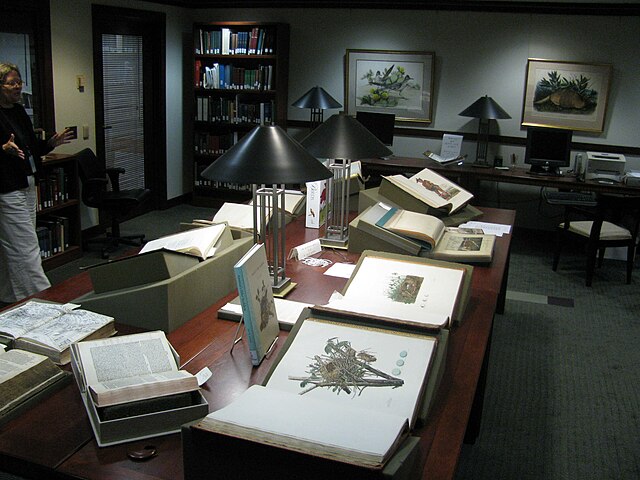(This is a guest post from Sara Snyder, the webmaster at the Archives of American Art, Smithsonian Institution.)
Librarians and archivists in the United States have been, and will continue to be, mostly female. According to the National Center for Education Statistics, 81 percent of current students pursuing a Masters in Library and Information Science (MLS) degree are women. As of 2011, women accounted for 83 percent of all librarians in the U.S. Archivists—a closely related profession, which also frequently requires an MLS degree—are also female. As of 2004, 64 percent of archivists were women.
Wikipedia editors have been, and will continue to be, mostly male. The Wikimedia Foundation’s 2011 editor survey reported that 92 percent of Wikipedia editors are male. Though important work is being done to try and close the gender gap, the disparity will likely continue to be pretty significant in the immediate future.
Yet—other than gender—librarians and archivists and Wikipedia contributors share much in common. Both groups are motivated by a deep desire to share knowledge with the world, to the point that they have committed their free time to working on the encyclopedia, or have chosen to focus professionally on helping researchers. Both groups have a strong understanding of how to conduct research and how to evaluate and cite authoritative sources. Both frequently have technical expertise with markup languages, metadata standards and information design. But most of all, both groups tend to hold strong beliefs that all people have a right to accurate, unbiased, high quality information, free from barriers and paywalls.
Phoebe Ayers, one of Wikipedia’s best-known and most eloquent advocates, is an academic librarian by profession. In her essay “Why Work on Wikipedia?” she describes the connection between her profession and her contributions to Wikipedia:
For me, the answer is a matter of scale. As a librarian, I am in the business of helping make sure that people get the information that they are looking for in order to do their jobs, educate themselves, satisfy their curiosity and live a fulfilling life…. [Wikipedia] is also working towards these goals, but on a global, multilingual and hitherto unprecedented scale…. It’s a simple matter of efficiency—I work on Wikipedia, and try to make it better, in order to reach as many people as possible.
This desire to maximize the impact of her work as an information professional is one that many of Ayers’ professional colleagues probably identify with. However, many librarians and archivists may not yet realize that the Wikipedia community welcomes and values their contributions.
Given the demographics and goals of workers in these professions, recruiting a greater numbers of librarians and archivists to contribute to Wikipedia is a smart strategy to help close the gender gap on Wikipedia. I have some additional, anecdotal evidence for the wisdom of this strategy: me. I am an archivist by training, and if it weren’t for outreach on the part of Wikipedians allied with the GLAM-Wiki project, I would not be writing this blog entry. Even though I created my first Wikipedia article over six years ago, I only began to contribute to Wikipedia on a regular basis after two very talented Wikimedians–Katie Filbert and Sarah Stierch–reached out to me and my Smithsonian colleagues in the spring of 2011. They worked to demystify the platform and the community, and explained how institutions like the Smithsonian could partner with Wikipedia in a relationship of mutual benefit. Their efforts led to the ongoing Smithsonian GLAM-Wiki Partnership, which at this point has yielded two Wikipedian-in-Residencies, hundreds of edits and Commons contributions, five Smithsonian-hosted edit-a-thon outreach events and myriad new and recommitted Wikipedia editors.
Two years later, Smithsonian librarians and archivists are the ones demystifying Wikipedia and promoting its ideals of openness and the free sharing of knowledge to our colleagues and to the public. On October 12, 2012 the Smithsonian Libraries and Wikimedia DC jointly sponsored “Wikipedia Loves Libraries: Backstage at the Smithsonian Libraries,” which took place in the main library in the National Museum of Natural History in Washington, D.C. It was our largest edit-a-thon at the Smithsonian to date. The results of the day included a Wikipedia training session for over 40 staff members and volunteers and at least seven new user accounts registered. But the best part of the event for me was looking around the room and not seeing “92 percent this” or “84 percent that.” The room was filled with people of diverse genders, ages, and backgrounds, united in their enthusiasm for learning new skills and for sharing what they know with new audiences around the globe.
That is the Wikipedia community that I am proud to be a part of.
Sara Snyder (User:Sarasays)
(You can read more about the recent Smithsonian edit-a-thon: [http://blog.library.si.edu/2012/10/editing-wikipedia-better-with-friends-and-best-with-librarians/ Editing Wikipedia: Better with friends, and best with librarians!” also by Sara Snyder)

Can you help us translate this article?
In order for this article to reach as many people as possible we would like your help. Can you translate this article to get the message out?
Start translation

